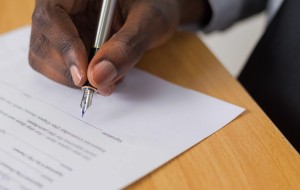
In today’s economic landscape, financial challenges can arise unexpectedly, leaving individuals overwhelmed and uncertain about their options. Whether it’s mounting debt, foreclosure threats, or creditor harassment, navigating through such crises can be daunting without proper guidance. Fortunately, seeking the assistance of a knowledgeable personal bankruptcy attorney can provide clarity and relief in times of financial distress. Here are five signs that indicate you may need the expertise of a personal bankruptcy attorney to navigate your financial situation effectively:
1. Overwhelming Debt Burden:
If you find yourself drowning in a sea of debt with no feasible repayment plan in sight, it may be time to consult a personal bankruptcy attorney. Whether your debt stems from credit cards, medical bills, or loans, an attorney can assess your financial situation and recommend the best course of action. They can help you explore options such as Chapter 7 or Chapter 13 bankruptcy to alleviate your debt burden and achieve a fresh financial start.
2. Threat of Foreclosure:
Are you facing the risk of losing your home due to missed mortgage payments or foreclosure proceedings? Seeking the assistance of a personal bankruptcy attorney can provide crucial support in negotiating with lenders and exploring alternatives such as mortgage modification or bankruptcy protection. With their expertise, you can work towards saving your home and securing a more manageable repayment plan that aligns with your financial circumstances.
3. Persistent Creditor Harassment:
Dealing with incessant calls and letters from creditors can be emotionally taxing and exacerbate an already stressful situation. A personal bankruptcy attorney can intervene on your behalf and put an end to creditor harassment through legal channels. By filing for bankruptcy, you can benefit from an automatic stay, which prohibits creditors from engaging in collection activities, providing you with much-needed relief and peace of mind.
4. Declining Credit Score and Financial Health:
A deteriorating credit score and worsening financial health are red flags that warrant immediate attention. Rather than allowing your financial situation to spiral out of control, consulting a personal bankruptcy attorney can help you assess your options and take proactive steps to mitigate further damage. By addressing your financial challenges head-on, you can begin the journey towards rebuilding your credit and securing a more stable financial future.
5. Complex Legal Procedures:
Bankruptcy laws can be intricate and complex, making it essential to enlist the expertise of a qualified attorney who specializes in personal bankruptcy cases. From navigating paperwork and court proceedings to representing your interests effectively, an experienced attorney can guide you through the entire bankruptcy process with professionalism and diligence. By entrusting your case to a knowledgeable legal professional, you can minimize errors, expedite proceedings, and maximize the likelihood of a favorable outcome.
In conclusion, recognizing the signs that indicate the need for a personal bankruptcy attorney is the first step towards regaining control of your financial future. Whether you’re facing overwhelming debt, foreclosure threats, or creditor harassment, seeking legal guidance can provide invaluable support and peace of mind. With their expertise and advocacy, a personal bankruptcy attorney can help you navigate through challenging times and emerge with a fresh start towards financial stability and independence.
Lewis and Jurnovoy is a local law office serving the Florida Panhandle. We specialize in bankruptcy law, including Chapter 7 and Chapter 13 bankruptcy. We will work to achieve the best financial remedy for your outstanding debts.
Lewis & Jurnovoy PCB
2714 West 15th St
Panama City, FL 32401
(850) 913-9110
https://www.LewisandJurnovoy.com









